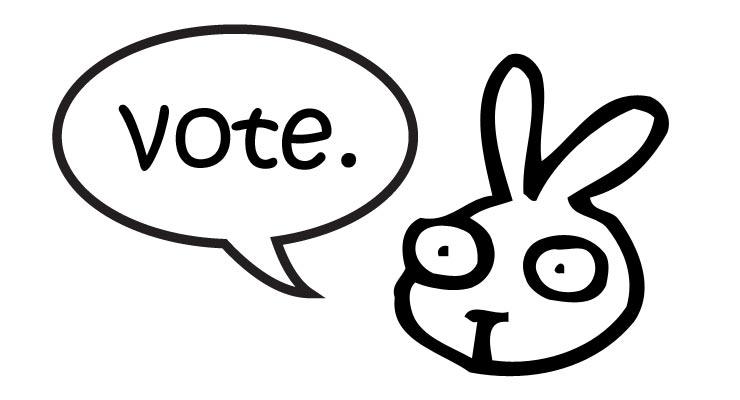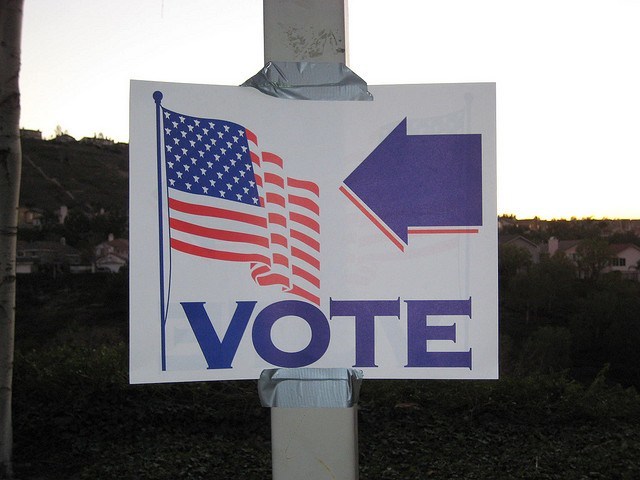
Multiple States Considering Changing the Way They Elect President Through a Direct National Popular Vote
Democracy, elections, and voting at Democracy Chronicles
Responding to Media Personality Jason Lewis’ Critique of the National Popular Vote Initiative
Author: Rich Rubino
Minnesota talk radio show host Jason Lewis warns: ‘Here’s What Happens If The National Popular Vote is Made Prime’ Mr. Lewis is perturbed by the fact that the movement known as the National Popular Vote Initiative (NPVI) is picking up momentum. The NPVI is an interstate compact, wherein participating states agree to award their electoral votes to the winner of the national popular vote. The agreement would be activated once enough states (constituting the requisite 270 electoral votes needed to win a Presidential election) agree to the compact.
Lewis is incorrect in stating that the NPVI was inspired by Al Gore. As Lewis later admits in his article, the compact enjoys support from across the ideological spectrum. Prominent conservatives, with no love for former Vice President Al Gore, support the NPVI because it will give every voter a seat at the electoral table. Conservative stalwarts, including former U.S. Senators Jack Garn (R-UT), and Fred Thompson (R-TN), and former U.S. Representative Tom Tancredo (R-CO) are steadfast backers of the compact. Tancredo calls it ‘a constitutional way of saying that every vote should count.’
Lewis makes the flawed assertion that this compact would result in ‘deciding the presidential race by pure democratic rule.’ In fact, the NPVI compact in no way leads the nation down the slippery slope of Democratic rule. The President would simply be elected the same way Americans elect Cemetery Commissioners, County Coroners, Governors, and U.S. Senators. All are decided by which candidate garners the most votes. The NPVI merely makes every vote equal and discourages Presidential candidates from allocating the preponderance of their time and resources in just 15 showdown states. The Founding Fathers respected federalism, and abrogated the method of awarding electors to the states in Article ll, Section 1, Clause 2 of the U.S. Constitution which states: ‘Each State shall appoint, in such Manner as the Legislature thereof may direct, a Number of Electors.’
Lewis goes on to assert that: ‘Campaign Resources are finite and in a popular-vote scenario, less populated states would remain fly-over country as candidates flocked to the most populated urban centers.’ Mr. Lewis is correct in this respect, in that campaign resources are in fact finite. However, Presidential candidates would likely make a play for votes in every state given the fact that the electoral objective would be to win a numerical victory. With this in mind, local campaign volunteers would be galvanized in every state, and candidates would make efforts to cultivate as many local precinct captains as possible.
With advertising being inexpensive in many small states, campaigns would likely buy spots in Montana, North Dakota, and South Dakota. Voter turnout would likely increase because the majority of American voters who reside in safe states would actually think their vote mattered. As for Lewis’ supposition that candidates would spend the preponderance of their time in ‘urban centers,’ that would be counterproductive to their campaigns. The nation’s top 25 cities comprise only 12of the American electorate. The nation’s five largest populated cities constitute just 6of the nation’s aggregate electorate.
Accordingly, to win the national popular vote, a candidate must appeal to the large majority of Americans who do not live in these urban centers. At the state level, candidates do not spend all their time and resources only in urban centers. In 2010, Texas Governor Rick Perry was re-elected by 13 percentage points, despite being overwhelmingly defeated in the state’s two largest cities: Houston and Dallas. In fact, these two Loan Star cities are two of the largest populated U.S. cities. In New York, George Pataki served three terms as Governor despite the fact that he was wiped out in the nation’s largest city, New York City. Finally, California has elected four Governors in the last 46 years who did not even come close to carrying the state’s largest city, Los Angeles.
Lewis is correct when he opines: ‘A republic does not rest on pure majority (mob?) Rule. It incorporates various checks and balances to filter the majority and protect the minority.’
Yet the NPVI in no way establishes ‘mob rule.’ The template for the governance system that the Founding Fathers established came from the Roman Republic. Under the Roman system, the people do not directly govern themselves. Instead, they select fellow citizens to represent them, and these representatives in turn determine who will hold the office of the Presidency. Under ‘mob rule’ the citizenry would vote on the issues themselves and the majority vote would decide the outcome. This is diametrically opposed to what the NPVI is advocating.
Finally, Lewis wonders whether the NPVI is constitutionally permissible, pointing to Article 1 Section 10 of the U.S. Constitution which states: ‘No state shall, without the consent of Congress … enter into any agreement or compact with another state …’ However, the protocol for the U.S. Congress is to consider an interstate compact ‘after’ all participating states have signed on. Federal Case Law dictates that the Compact Clause should not be read literally.
In the 1978 U.S. Supreme Court case of U.S. Steel Corporation v. Multistate Tax Commission, Justice Lewis Powell, writing for the majority, argued: ‘Read literally, the Compact Clause would require the States to obtain congressional approval before entering into any agreement among themselves, irrespective of form, subject, duration, or interest to the United States.’ That being said, to avoid the protracted litigation process that could ensue, National Popular Vote is working to introduce legislation in the U.S. Congress for Congressional consent of the compact.
Lewis, like many other detractors of the NPVI, has an unfounded fear of the effects of the compact. However, the agreement among the willing states will simply create a situation wherein every vote is equal in every election cycle. This will not result in the electoral apocalypse.
Article Source: https://www.articlesbase.com/politics-articles/responding-to-media-personality-jason-lewis-critique-of-the-national-popular-vote-initiative-5647701.html
About the Author
Rich Rubino, of Marblehead, MA is the author of The Poilitical Bible of LIttle Known Facts in American Politics. He holds a B.A. in Communications (Media Track) from Aassumption College and an M.A. in Broadcast Journalism from Emerson College.

Leave a Reply